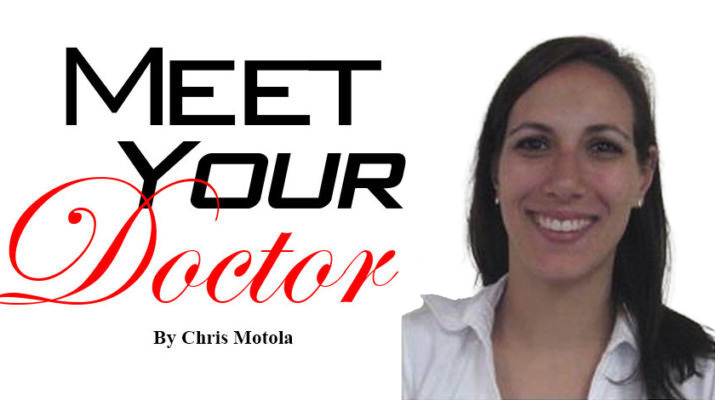Highland Hospital ER attending physician receives ‘Unsung Hero’ award from New York American College of Emergency Physicians, discusses emergency medicine work
By Chris Motola
Q: You were recently awarded an Unsung Hero Award by the New York American College of Emergency Physicians.
A: I’m very excited about it. I love to practice emergency medicine. I’m excited about receiving this award, but honestly it speaks more to the amazing team that I have around me and the wonderful environment in which I’m able to work as much as anything about me individually.
Q: How did you become nominated for it?
A: I was nominated by my department, specifically Dr. [Timothy] Lum. I think it’s an effort to recognize people who go above and beyond to contribute to emergency medicine with compassionate care and providing excellence in care in the emergency department.
Q: What kinds of challenges have you faced recently in emergency medicine?
A: I don’t think it’s any secret that emergency medicine has faced some unique challenges, particularly recently. Large volumes of patients boarding in the emergency department. But I’m very fortunate to be part of a team that’s rising to those challenges and making sure we’re providing excellent care to patients despite those challenges.
Q: What kind of tactics are you employing to meet those challenges?
A: We’re expanding our provider coverage. We have a physician who is present at triage for most of the day to give initial evaluations to patients who come into the emergency department and to try to decrease wait times. The hospital is trying to find innovative ways to access additional space, to provide patient care.
Q: What kinds of complaints do patients typically present with?
A: That’s a hard question to answer because what I do can be very different depending on the day. It’s the nature of emergency medicine that there’s something different and something new every day. We see a lot of geriatric patients, which I love, and a lot of variety, which I love. I love meeting new people and caring for everybody who comes in regardless of the complaint. It’s a unique challenge in emergency medicine that makes it interesting and rewarding.
Q: If you were talking to another emergency medicine physician from a different part of the country, what would you say characterizes your patient base somewhat uniquely?
A: We do specialize in geriatric care, so I think that’s one of our populations that we pride ourselves on providing excellent care to. But I think what makes Highland unique is the compassionate people who work there and love being part of the hospital.
Q: How does that compassion manifest on the job, would you say?
A: The emergency department team is extremely hard working. There’s a palpable feeling that the people working there really care about the job and their patients. And while I really appreciate that in the emergency department, I think it extends even beyond the emergency department. It makes my job a lot more rewarding, having a great team of hospitalists and providers across the board. I think working in the emergency department gives you a perspective on that because you’re working with people in so many fields. I really appreciate them and appreciate the compassionate care that people provide at Highland.
Q: What got you interested in emergency medicine?
A: I really love emergency medicine because every day’s a little bit different. You get to provide care for all types of different patients, which makes for a very interesting and rewarding job. When I was in medical school, I enjoyed every rotation I was in. I love learning. Part of the reason I went into emergency medicine is because there’s a wide breadth of knowledge in fields that interact. I like taking care of acutely ill patients. I like the challenge of being ready to meet a complaint that could come into the emergency department at any time.
Q: What do you like about dealing with acutely ill or injured patients?
A: I like the challenge involved. You have to quickly determine what’s wrong and quickly figure out what you have to do to stabilize them and keep them safe. I like the environment. It’s just a totally different field of medicine than primary care even though they both require a broad base of knowledge.
Q: How do you avoid burnout in such a high stress environment?
A: Of the specialties, emergency medicine has a particularly high rate of burnout. The specialty is trying to improve in that regard. I have the privilege of being involved with the simulations for the emergency medicine residents. One thing we’re doing with the residents is we’ve embedded a mindfulness curriculum. The simulations tend to be high acuity, low occurrence concerns because in the emergency room you may encounter something you don’t see very often but have to be prepared for. The mindfulness element tries to give residents tools for when they’re dealing with challenging scenarios that can help them deal with the stress of the job and hopefully increase the longevity of their careers.
Lifelines
Name: Lisa Lincoln, M.D.
Position: Assistant professor of emergency medicine at University of Rochester School of Medicine and Dentistry; attending physician in the department of emergency medicine at Highland Hospital
Hometown: Rochester
Education: Graduated summa cum laude from SUNY Geneseo; medical degree from the University of Rochester School of Medicine and Dentistry (graduated with honors in 2009); completed her emergency medicine residency at the University of Rochester, and she served as the chief resident in 2012
Affiliations: Highland Hospital
Organizations: New York American College of Emergency Physicians
Family: Married, two daughters
Hobbies: Running, hiking, kayaking

